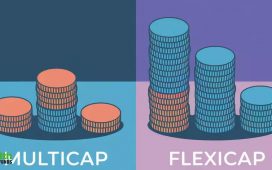The percentage of investment advisers who say they “completely trust” sustainability claims from funds has fallen from 1% to zero, according to the ESG Attitudes Tracker from the Association of Investment Companies.
On a scale of one to five, most respondents (51%) rated their level of trust as ‘three’, indicating limited trust. Advisers told the researchers that recommending funds based on misleading claims puts their business at risk.
One adviser said: “I am concerned about [greenwashing] because to recommend something on the basis that it meets my client’s desires for investment and then to subsequently find out that it didn’t is a dangerous position for me to be in.”
ESG investing popularity declines among UK investors over greenwashing fears
A discretionary fund manager (DFM) branded greenwashing “dreadful”, and said they expected it to get worse.
ESG ratings, which aim to help investors and their advisers judge a fund’s sustainable credentials, were also met with significant distrust.
Less than a fifth (19%) of respondents trusted them, and only 24% of respondents agreed they help to alleviate greenwashing concerns.
One respondent said: “‘There needs to be more industry standard regulations on ESG ratings. It is a minefield.”
Despite these concerns, more than nine out of ten advisers and wealth managers recommend sustainable funds, which was stable from last year. Sustainable funds also account for more of a clients’ portfolios on average, at 17% versus 16% in 2022.
Nearly three quarters (72%) of wealth managers predicted demand for ESG investing to grow over the next 12 months, although this is down on previous surveys. In 2022, 80% expected demand to increase, down from 91% in 2021.
European regulator sounds alarm over ‘clear increase’ in potential greenwashing cases
One adviser said: “A lot more of my clients are asking about ESG investments and I am attending more webinars and seminars on ESG to increase my knowledge and understanding around the area to be able to advise clients effectively.”
More widespread advising on ESG funds is leading to an expanding understanding of the sector. Almost half (47%) of DFMs rated their knowledge as very good or excellent, up 16 percentage points from last year’s survey. For advisers it was 31%, up 4 percentage points.
One DFM told the AIC they had seen “growing evidence that integrating ESG factors into investment analysis can potentially lead to better risk-adjusted returns”, and, as regulations evolve, “proactive companies that address ESG issues are likely better prepared for regulatory changes than others”.
More broadly, DFMs and advisers were split on whether ESG investing is more likely to help or hinder performance.
SIF 2023: Asset managers ‘more worried than ever’ about greenwashing
Among DFMs, 41% thought it is more likely to help performance, and 29% that it is more likely to be a hindrance. But among advisers, the pattern is reversed, with 24% saying it will help and 34% hinder.
Taking all intermediaries together, the percentage of respondents expecting a performance boost from ESG investing has reduced sharply from 47% in 2021 to 32% in this year’s survey, amid a recent run of poor performance from some ESG funds.
Nick Britton, research director at the AIC, said: “Advisers and wealth managers remain deeply sceptical about sustainability claims from funds, even as they expect demand for these strategies to increase.
“Conversations with clients remain challenging because of varying levels of interest and understanding, confusion over key terms and concepts, and even the politicisation of some ESG issues.”










